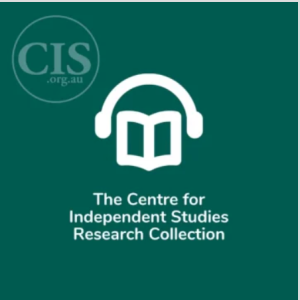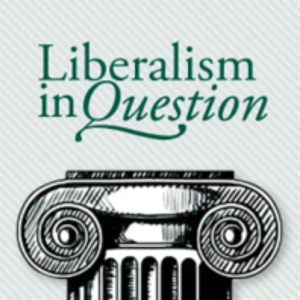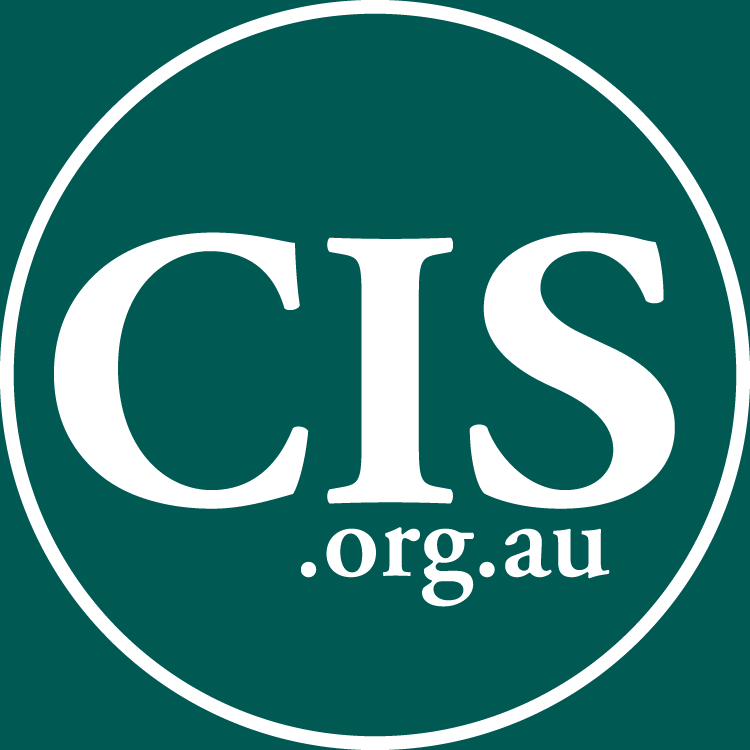Centre for Independent Studies
Let’s share good ideas. 💡 The Centre for Independent Studies promotes free choice and individual liberty and the open exchange of ideas. CIS encourages debate among leading academics, politicians, media and the public. We aim to make sure good policy ideas are heard and seriously considered so that Australia can prosper.
Episodes

34 minutes ago
34 minutes ago
Immigration and housing affordability have become politically inseparable in contemporary Australia. With rents high, home ownership increasingly out of reach, and housing supply persistently undershooting official targets, it is tempting to conclude that fewer migrants would mean lower prices. That argument has intuitive appeal. More people require more homes. In tightly-constrained markets, additional demand pushes up rents and prices.
But intuition is not policy. The evidence suggests a more nuanced reality: migration increases housing demand, yet whether that demand translates into sustained price pressure depends fundamentally on the responsiveness of supply. Where planning systems restrict land use, delay approvals, and cap density, even modest demand shocks quickly become price shocks. Where supply is flexible and institutions allow building to respond, the long-term affordability effects are far smaller — and can even be offset by stronger economic and housing growth.
This paper argues that Australia’s housing crisis is primarily a supply failure, not simply a headcount problem.
It examines international and Australian evidence on migration and housing markets, including research on zoning restrictions, supply elasticity, and labour bottlenecks in construction. It also considers the role of skilled migration in strengthening the productive capacity of the economy — particularly in the very occupations needed to design, approve and build more homes.
The central point is straightforward. Australia does not face a binary choice between skilled migration and affordable housing. It faces a policy choice between maintaining restrictive land-use systems that convert growth into scarcity, or reforming those systems so that population growth can be absorbed through construction rather than capitalised into higher prices.
In short, the housing shortage is not an inevitable consequence of migration. It is the predictable result of constrained supply.
The choice is not ‘immigration or affordability’In Australia today, mass immigration is a political non-starter partly because many voters see the increased cost of housing as one of the country’s most urgent cost-of-living problems. A more plausible approach to immigration is narrower and more practical: a focused intake of skilled migrants who can help Australia innovate, raise productivity, and fill capability gaps without automatically worsening housing shortages.
True, a growing population raises housing demand, but the size of the cost effect depends on whether supply can respond. Skilled migrants can strengthen the supply side of the economy, including the people and systems needed to approve, design, and build more homes. In that sense, the real choice should not be ‘immigration or affordability’.
It should be whether Australia combines skilled immigration with faster homebuilding and better land-use rules.
Australia’s housing shortage and the concomitant affordability decline is real, as Sam Fox and I noted in a recent CIS report. But it does not follow that more skilled immigration must make matters worse. The key word is must. In a city where housing supply is fixed, adding more people pushes up rents and prices. In a city where supply can expand, the same population growth can be absorbed with much smaller price effects; especially over time. The research supports both parts of that claim. The argument is not that demand disappears. The argument is that policy and supply response decide whether demand becomes a lasting affordability problem.Start with the point that critics get right. Albert Saiz’s well-known U.S. study finds that immigration inflows raise local rents and housing values in destination cities, with an estimated effect of about 1% on rents and values for an inflow equal to 1% of a city’s population. That is a real demand effect that no serious account of the housing problem should deny.
But Saiz’s broader work shows that housing supply differs sharply across cities because of geography and regulation. In plain language, some places can build — but don’t. If a city’s house building program is constrained by planning rules, height limits, approval delays, and political veto points, then any demand shock, including migration, turns into a price shock faster. If supply is flexible, more of the shock turns into construction.
Read the whole paper at www.cis.org.au

Monday Feb 16, 2026
Monday Feb 16, 2026
Join us on Liberalism in Question for an enlightening discussion with Dr. Jennifer Buckingham, former Senior Research Fellow at the Centre for Independent Studies and a leading voice in Australian education policy. From critiquing barriers in public schooling to advocating for phonics-based reading instruction and greater parental choice, this episode examines the role of liberalism in fostering equitable opportunities and innovation in Australian education.
👉 Support CIS Research:🔹 Become a member: https://www.cis.org.au/membership-2-step-1/ 🔹 Make a donation: https://www.cis.org.au/support/donate/today/ 🔹 Learn more: https://www.cis.org.au/
👉 Further reading:
Why Jaydon Can’t Read: A Forum on Fixing Literacy: https://www.cis.org.au/publication/why-jaydon-cant-read-a-forum-on-fixing-literacy/
Knowledge is power: What do teachers believe about learning?: https://www.cis.org.au/publication/knowledge-is-power-what-do-teachers-believe-about-learning/
Childcare in Australia: A new approach: https://www.cis.org.au/publication/childcare-in-australia-a-new-approach/

Monday Feb 09, 2026
Monday Feb 09, 2026
In this thought-provoking episode of Liberalism in Question, we delve into the rich tapestry of Australia's liberal history with esteemed guest Dr Greg Melleuish, Associate Professor of History and Politics at the University of Wollongong. Explore how liberalism shaped Australia's political landscape, influenced key figures like Alfred Deakin and Robert Menzies, and continues to inform contemporary debates on freedom, modernity, and national identity.
👉Further Reading:
A Short History of Australian Liberalism: https://www.cis.org.au/publication/a-short-history-of-australian-liberalism/
👉 Support CIS Research:🔹 Become a member: https://www.cis.org.au/membership-2-step-1/ 🔹 Make a donation: https://www.cis.org.au/support/donate/today/ 🔹 Learn more: https://www.cis.org.au/

Monday Feb 02, 2026
Monday Feb 02, 2026
In this thought-provoking episode of Liberalism in Question, we welcome Emma Dawson, Executive Director of the progressive think tank Per Capita (and formerly of the Chifley Research Centre), to offer a contrasting social democratic perspective. Challenging classical liberal skepticism toward government overreach, Dawson argues that the state can—and should—play a constructive, helpful role in addressing inequality and building shared prosperity.
👉 Support CIS Research:🔹 Become a member: https://www.cis.org.au/membership-2-step-1/ 🔹 Make a donation: https://www.cis.org.au/support/donate/today/ 🔹 Learn more: https://www.cis.org.au/

Monday Jan 26, 2026
Monday Jan 26, 2026
Join us on Liberalism in Question as Senator Kerrynne Liddle shares her insights on why one-size-fits-all policies fall short in a diverse nation like Australia. Liddle critiques excessive bureaucracy, advocating for greater personal and community responsibility to drive real progress and prosperity.
This episode challenges conventional thinking on Indigenous affairs and explores how classical liberal principles can foster genuine equality and self-reliance.
👉 Support CIS Research:🔹 Become a member: https://www.cis.org.au/membership-2-step-1/ 🔹 Make a donation: https://www.cis.org.au/support/donate/today/ 🔹 Learn more: https://www.cis.org.au/
👉 Further reading:
Liberalism’s Universal Vision Better Than a Race-Based Voice: https://www.cis.org.au/publication/liberalisms-universal-vision-better-than-a-race-based-voice/
The Road Ahead for Indigenous Policy: https://www.cis.org.au/publication/where-to-now-the-road-ahead-for-indigenous-policy/
Joining the Real Economy: mapping the economic potential of remote Indigenous communities: https://www.cis.org.au/publication/joining-the-real-economy-mapping-the-economic-potential-of-remote-indigenous-communities/

Monday Jan 19, 2026
Monday Jan 19, 2026
Get your tickets to see Alexander Downer in Sydney: https://events.humanitix.com/alexander-downer-leadership-between-allies-and-the-region
In this episode of Liberalism in Question, former Australian Foreign Minister Alexander Downer joins us to dissect the ever-shifting landscape of political ideologies. From the rise of Trump's nationalist movement and its global ripple effects, to the enduring appeal of economic liberalism as a pathway to prosperity, Downer offers sharp insights into why ideologies evolve like fashion trends—and what it means for our future.
👉 Support CIS Research:🔹 Become a member: https://www.cis.org.au/membership-2-step-1/ 🔹 Make a donation: https://www.cis.org.au/support/donate/today/ 🔹 Learn more: https://www.cis.org.au/

Monday Jan 19, 2026
Monday Jan 19, 2026
In the second half of the twentieth century, Australia’s cheap, reliable electricity attracted heavy industry to our shores. By 1990, power-hungry copper, aluminium, lead, manganese and zinc smelters had popped up in each of the eastern states that would one day form the National Electricity Market (NEM). As Matthew Warren, former chief executive of the Australian Energy Council, the Energy Supply Association of Australia and the Clean Energy Council, describes the Australian grid:
In 2000, the coal and gas used were abundant and cheap, and the hydro was provided by rainfall. It was by international standards, about as cheap and reliable an electricity system as you could build. Its brutal simplicity, reliability and low cost had attracted global industries including aluminium and other processors. These were ‘the good old days’ of cheap and reliable electricity in Australia.
But trouble has been brewing in Australia’s smelting paradise over the last two decades, as rising energy prices, carbon charges and foreign competition have taken their toll. These forces have eroded the comparative advantage Australia once enjoyed, shuttering existing industries and dissuading investors from building new ones. Government promises of a ‘renewable energy superpower’ Future Made in Australia built on intermittent renewables, batteries and hydrogen are looking increasingly implausible.Read the paper here: https://www.cis.org.au/publication/future-no-longer-made-in-australia-how-we-lost-our-low-cost-electricity-advantage/

Tuesday Jan 13, 2026
Tuesday Jan 13, 2026
In this episode of Liberalism in Question, we dive deep into the complex and often overlooked history of liberalism in the Middle East with renowned expert Joshua Landis. As a professor of Middle East history at the University of Oklahoma and director of the Center for Middle East Studies, Landis brings decades of insight from his work on Syria, sectarianism, and regional politics. Join us as we explore the challenges posed by secular and religious authoritarianism and modern conflicts in countries like Egypt, Syria, and Israel.
👉 Support CIS Research:🔹 Become a member: https://www.cis.org.au/membership-2-step-1/ 🔹 Make a donation: https://www.cis.org.au/support/donate/today/ 🔹 Learn more: https://www.cis.org.au/

Tuesday Jan 06, 2026
Tuesday Jan 06, 2026
From Donald Trump to the lockdowns, Dave Rubin sits down with Robert Forsyth to discuss classical liberalism in the American context.
👉 Support CIS Research:🔹 Become a member: https://www.cis.org.au/membership-2-step-1/ 🔹 Make a donation: https://www.cis.org.au/support/donate/today/ 🔹 Learn more: https://www.cis.org.au/

Tuesday Dec 23, 2025
Tuesday Dec 23, 2025
Senator James Paterson joins Liberalism in Question to discuss the core principles of classical liberalism — individual liberty, limited government, free markets, and the rule of law — and how they apply to Australia’s current political debates. The conversation explores where liberalism is being challenged, misunderstood, or defended, and what its future looks like in a changing political landscape.
👉 Support Sound Economic Research:🔹 Become a member: https://www.cis.org.au/membership-2-step-1/ 🔹 Make a donation: https://www.cis.org.au/support/donate/today/ 🔹 Learn more: https://www.cis.org.au/
Senator James Paterson is a Liberal Senator for Victoria. First elected in March 2016 at age 28, Senator Paterson is the youngest Liberal ever elected to the Senate.
During his time in the Senate, he has fought for Australia’s prosperity, freedom, democracy and sovereignty.

Centre for Independent Studies
Let’s share good ideas. 💡
The Centre for Independent Studies promotes free choice and individual liberty and the open exchange of ideas. CIS encourages debate among leading academics, politicians, media and the public. We aim to make sure good policy ideas are heard and seriously considered so that Australia can prosper.




